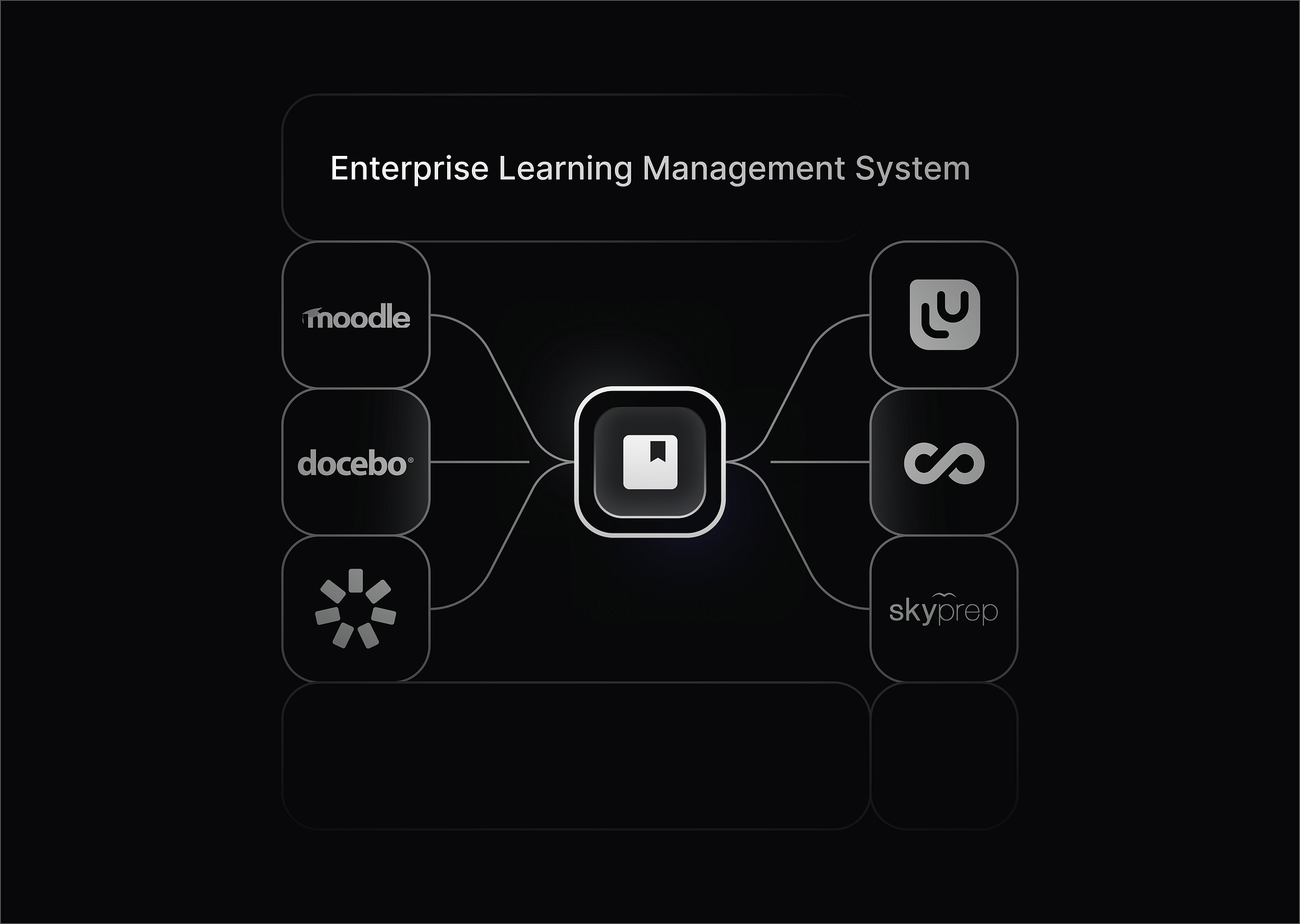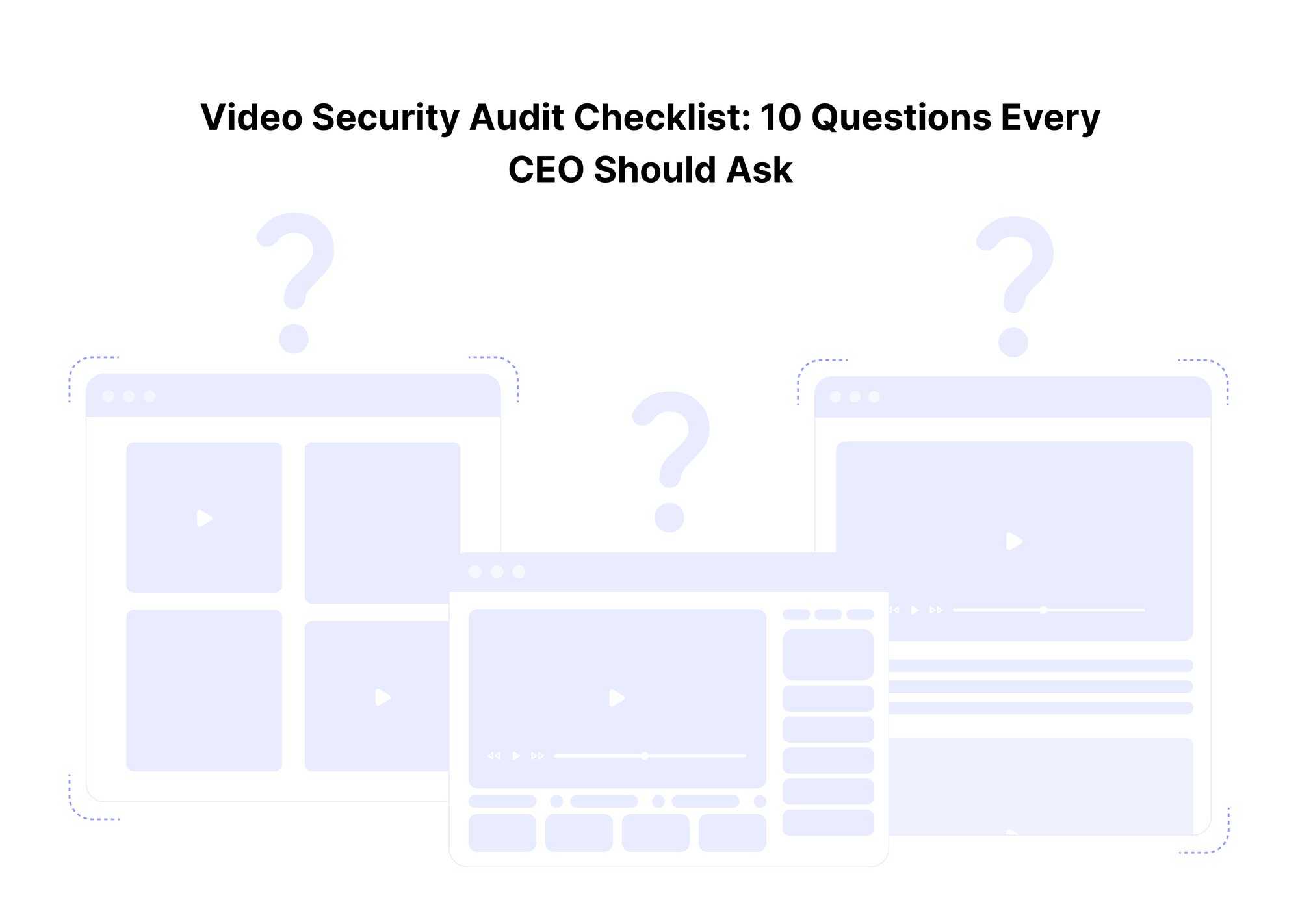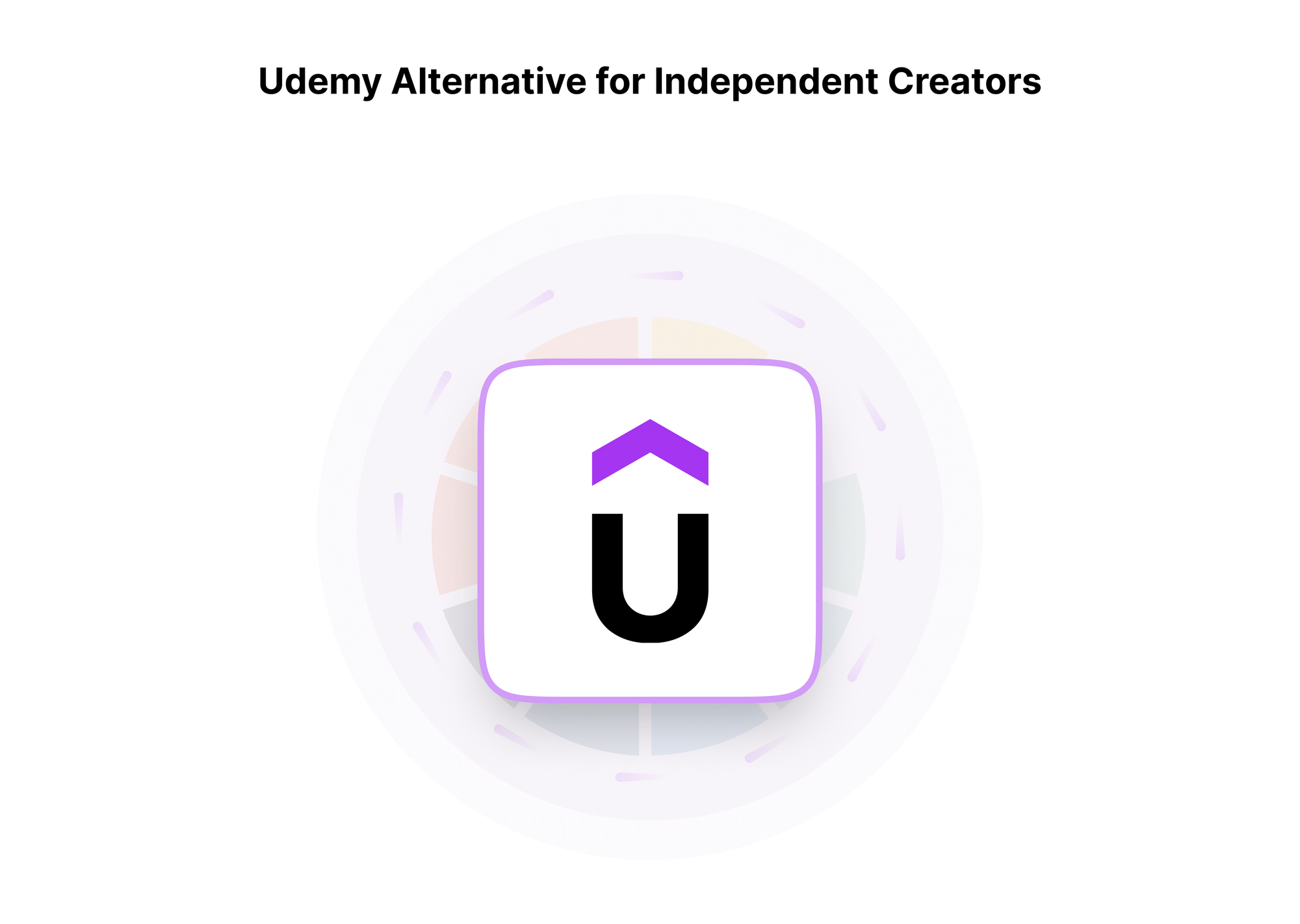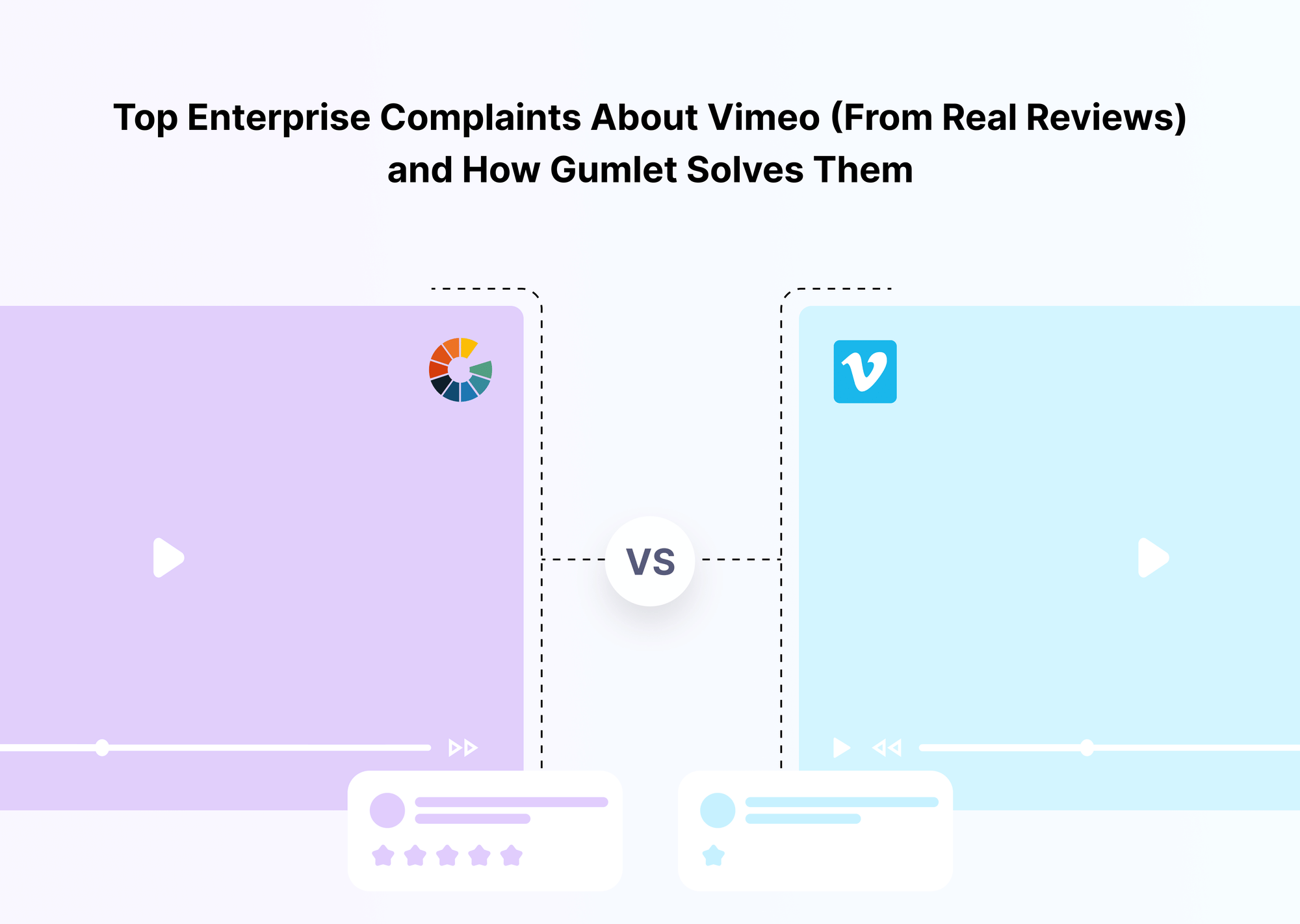Selecting the right Enterprise Learning Management System (LMS) is crucial for businesses aiming to enhance their employee development and operational efficiency.
An ideal LMS not only facilitates training and compliance but significantly impacts overall organizational productivity and employee retention.
This comprehensive guide is tailored specifically for HR professionals, Learning and Development (L&D) teams, and key decision-makers seeking the best enterprise LMS for their organizational needs.
What Is an Enterprise Learning Management System?
An enterprise learning management system (ELMS) is specialized software designed to efficiently manage, deliver, and track comprehensive training and development programs within large, complex organizations. It serves as a centralized platform that can accommodate high volumes of users, varied training content, and extensive administrative tasks associated with learning and development activities.
Unlike a regular LMS that primarily focuses on smaller-scale educational needs, an enterprise LMS is specifically built to handle large-scale, diverse, and often geographically dispersed user groups. These advanced systems provide extensive functionality for handling multiple organizational departments, different user roles, and complex reporting and analytics requirements.
Key differences between enterprise LMS and regular LMS include:
- Scalability: Enterprise LMS platforms are capable of supporting thousands of simultaneous users without performance degradation, making them ideal for large organizations.
- Integration Capabilities: Enterprise LMS solutions offer robust integration with existing enterprise applications such as Human Resource Management Systems (HRMS), Customer Relationship Management (CRM), Enterprise Resource Planning (ERP), and others, ensuring seamless workflows across various organizational processes.
- Multi-tenancy: A unique feature allowing a single LMS instance to serve multiple groups or departments independently. This ensures each department or division can tailor its learning environment according to specific needs and preferences while still maintaining centralized management and oversight.
Enterprise LMS systems are typically utilized for various critical organizational use cases, including:
- Employee Onboarding: Efficiently onboarding new hires by delivering structured and consistent orientation programs across different locations.
- Compliance Training: Ensuring employees meet industry-specific compliance requirements and regulations through mandatory training, detailed record-keeping, and automated notifications.
- Continuous Skill Development: Facilitating ongoing professional development programs to help employees stay competitive, enhance productivity, and foster career growth.
- Performance Management: Integrating performance tracking and appraisal systems with training and development initiatives, enabling organizations to closely monitor progress, identify skill gaps, and measure training effectiveness.
Now that we have understood what exactly an ELMS is, let’s look at the different types of ELMS present today.
Types of Enterprise LMS Solutions
When considering an enterprise LMS, understanding the different solution types available is crucial for selecting the best fit for your organization's unique requirements. Let's explore these in greater detail:
Cloud-based vs. On-premise LMS
Cloud-based LMS platforms are hosted on remote servers and accessed via the internet, offering significant advantages for modern organizations. These solutions provide ease of access from anywhere, automatic software updates, excellent scalability, and lower initial costs. They are particularly beneficial for companies with remote, distributed, or hybrid workforces, as they eliminate geographical and infrastructural barriers.
On the other hand, On-premise LMS solutions are installed and maintained directly on an organization's internal servers. This arrangement provides greater control over data security, enhanced customization capabilities, and the ability to comply with specific regulatory standards. However, these systems typically require substantial upfront investment in infrastructure, dedicated IT resources for maintenance, and ongoing support, making them ideal primarily for organizations prioritizing data control and possessing extensive in-house IT capabilities.
Extended Enterprise LMS
An extended enterprise LMS goes beyond internal employee training and targets external stakeholders, such as partners, resellers, franchises, and even customers. By offering tailored learning experiences to distinct user groups, these solutions can significantly enhance brand loyalty, improve partner performance, and drive additional revenue streams. The best extended enterprise LMS platforms allow for highly segmented and personalized training experiences, effectively supporting diverse learning needs across the broader organizational ecosystem.
Open-source vs. Commercial LMS
Open-source LMS solutions, such as Moodle, provide flexibility and extensive customization options, typically at a lower upfront cost. These platforms are community-driven, with access to numerous plugins, modules, and extensive customization capabilities. However, they require dedicated technical expertise for installation, customization, ongoing management, and maintenance.
Conversely, commercial LMS solutions offer out-of-the-box functionality, professional support, and streamlined user experiences. These solutions are ideal for organizations without extensive technical resources, seeking ease of use, advanced built-in features, and reliable vendor support. While commercial LMS solutions might involve higher initial costs, the reduced need for internal technical support and simplified management typically justify the investment.
So, now, after all of this information, how do you go about picking the enterprise LMS that is right for you? Simple – look at some of the key features that it must have. Let’s explore what they might be.
Key Features to Look Out for in an Enterprise LMS
Here are some of the most important features for you to look out for when you’re in the pursuit of finding an appropriate ELMS.
Scalability and Multi-tenant Support
Scalability ensures that the LMS can handle an increasing number of users without performance degradation. Multi-tenant support allows the LMS to effectively manage and segment various departments or external stakeholders independently, making it easier to maintain distinct training pathways, branding, and administrative control across the organization.
Customizable Learning Paths
Effective enterprise LMS platforms enable personalized learning experiences tailored to individual roles, skill levels, and career goals. Customizable learning paths enhance user engagement and ensure training relevance, leading to improved knowledge retention and performance outcomes.
Analytics and Reporting Tools
Advanced analytics and comprehensive reporting features allow organizations to track learner progress, measure training effectiveness, and gain valuable insights into learner behavior and outcomes. Real-time data reporting empowers managers to quickly identify gaps, adjust training strategies, and ensure alignment with business objectives.
Integration with HRMS and Other Tools
Seamless integration capabilities with Human Resource Management Systems (HRMS), Customer Relationship Management (CRM), and other essential enterprise software systems streamline administrative processes. This integration facilitates efficient data exchange, reduces manual entry errors, and improves overall organizational efficiency.
Mobile Accessibility and UI/UX
Mobile accessibility ensures learners can access training materials anytime, anywhere, supporting today's flexible and remote work environments. Intuitive user interfaces (UI) and positive user experiences (UX) are essential for maintaining learner engagement and promoting frequent, effective usage of the LMS platform.
Security and Compliance Standards (GDPR, SOC2)
Robust security measures, including compliance with GDPR, SOC2, and other industry-specific regulatory standards, are crucial for protecting sensitive user data. An enterprise LMS must offer comprehensive data protection, secure data storage, and rigorous access controls, ensuring confidentiality and compliance across global regulatory environments.
Now, let’s look at some of the top picks when it comes to enterprise LMS in 2026.
Top Enterprise LMS in 2026
Choosing the right Enterprise Learning Management System (ELMS) is crucial for organizations aiming to enhance training efficiency, compliance, and employee development. Below is a comprehensive overview of the top ELMS platforms in 2026:
Comparison Table
| Platform | Features Overview | Pros | Cons |
|---|---|---|---|
| AP Litmos | Compliance-focused | Mobile-friendly | Limited customization |
| Docebo | AI-driven personalization | Scalable automation | Expensive |
| TalentLMS | Gamification tools | Affordable | Limited integrations |
| LearnUpon | Multi-tenant support | Great customer service | High pricing tiers |
| Absorb LMS | Advanced reporting | Strong analytics | Steep learning curve |
SAP Litmos
SAP Litmos is a cloud-based LMS known for its user-friendly interface, robust analytics, and seamless integration capabilities.
Pricing Tiers: SAP Litmos doesn’t disclose it’s pricing for different tiers on the website. Please contact the tool to get pricing. However, the pricing tiers are broken down in the following manner:
- Foundation AI Suite: Designed for small companies or departments with under 100 learners. Includes Foundation AI LMS, Quick Start or Core Implementation, and Foundation Training Content. Pricing is quote-based.
- Premier AI Suite: Aimed at mid-market and high-growth companies needing a scalable solution. Includes Premier AI LMS, Core or Pro Implementation, and General Compliance Training Content. Pricing is quote-based.
- Platinum AI Suite: For enterprises seeking deep learner engagement tools and analytics. Includes Platinum AI LMS, Pro or Elite Implementation, and Litmos Training Content. Pricing is quote-based.
Pros:
- Intuitive interface with easy navigation.
- Strong reporting and analytics features.
- Extensive course library with over 80,000 courses.
Cons:
- Limited customization options.
- Some users report occasional bugs and challenges with customer support.
Ideal Use Case: Medium to large enterprises focusing on compliance training and streamlined onboarding processes.
Docebo
Docebo is an AI-powered LMS offering strong customization and extensive third-party integrations, suitable for medium to large organizations.
Pricing Tiers: Docebo doesn’t disclose it’s pricing tiers, either. However, the following prices have been gathered from a third-party accumulator website.
- Engage Plan: Starting at $25,000/year, includes features like languages & localization, white labeling, basic content creation, and standard support.
- Elevate Plan: Starting at $40,000/year, adds skills management, custom dashboards, premium support, and dedicated customer success manager.
- Enterprise Plan: Custom pricing for large and complex organizations with tailored features and support.
Pros:
- AI-driven personalization enhances learning experiences.
- Robust integration capabilities with various enterprise tools.
- Flexible pricing based on active users.
Cons:
- Higher costs for advanced features.
- Potential price increases on renewals.
Ideal Use Case: Enterprises requiring sophisticated analytics and personalized learning experiences.
TalentLMS
TalentLMS is an affordable, cloud-based solution ideal for SMEs and mid-sized enterprises, known for its user-friendly interface and quick deployment.
Pricing Tiers:
- Core Plan: $109/month for up to 40 users, includes unlimited courses and email support.
- Grow Plan: $229/month for up to 70 users, adds SSO support and SSL custom domain.
- Pro Plan: $369/month for up to 100 users, includes custom reports and additional branches.
- Enterprise Plan: Custom pricing for organizations needing unlimited users and branches
Pros:
- Affordable with transparent pricing.
- Quick and easy to set up.
- Offers a free plan for small teams.
Cons:
- Limited advanced analytics in lower tiers.
- Some limitations on video file sizes and content styling options.
Ideal Use Case: Small businesses scaling rapidly and needing a straightforward LMS solution.
LearnUpon
LearnUpon is a user-centric LMS focusing on ease of use and exceptional customer support, suitable for enterprises prioritizing customer and partner training.
Pricing: The website doesn’t reveal the pricing for different tiers.
Pros:
- Exceptional customer service.
- User-friendly interface.
- Strong support for external stakeholder training.
Cons:
- Higher starting price point.
- Limited advanced customization options.
Ideal Use Case: Enterprises focusing on training for customers, partners, and resellers.
Absorb LMS
Absorb LMS is a highly customizable platform renowned for its user-friendly interface, robust security compliance, and scalability, making it suitable for large enterprises with complex training needs.
Pricing: The website for Absorb LMS does not reveal the pricing for different tiers. However, here is a rough idea of the pricing tiers as gathered from various third-party websites:
- Pay-Per-User Model: Approximately $14,500 annually for up to 500 users.
- Pay-Per-Active-User Model: Costs are based on the number of users who log in or take a course during the billing period, offering flexibility for organizations with fluctuating user engagement.
- Additional Costs: Setup fees, advanced analytics (e.g., Absorb Analyze), and content libraries may incur extra charges.
Pros:
- Highly customizable
- Robust security compliance
- User-friendly interface
- Excellent customer support
Cons:
- Higher pricing
- Additional costs for advanced features
- Limited built-in content
Ideal Use Case: Large enterprises with extensive regulatory compliance requirements and complex user segmentation needs, seeking a secure and customizable LMS solution.
Which is the Best Enterprise LMS According to Us?
Considering comprehensive enterprise needs, Docebo stands out as our top recommended choice among enterprise LMS platforms for 2026. Its innovative approach, leveraging sophisticated AI-driven personalization, extensive integration capabilities, and powerful analytics, makes it ideally suited for forward-thinking organizations committed to maximizing their learning impact.
Docebo’s AI-powered learning algorithms proactively adapt training pathways based on user interactions, significantly enhancing learner engagement and retention rates. Its extensive library of integrations ensures seamless connectivity with essential HR, CRM, and analytics tools, creating a unified learning ecosystem tailored for modern business needs.
Industry experts consistently recommend Docebo due to its blend of advanced features and ease of use. Renowned e-learning analyst Josh Bersin has highlighted Docebo’s AI capabilities as "transformational," positioning it as a leader capable of addressing diverse and complex learning environments across enterprises.
Overall, if your organization prioritizes adaptability, deep analytics, and personalized learning experiences, Docebo emerges clearly as the best enterprise LMS solution available in 2026.
Benefits of Using an LMS for Business
If, as an organization, you are still debating the usage of LMS, here are some of the clear-cut benefits that should put your debates to rest!
Streamlined Onboarding and Training
An LMS significantly accelerates employee onboarding processes, ensuring consistent and standardized training experiences for new hires. Automated training pathways and readily accessible resources help new employees quickly become productive, reducing the time-to-competency and minimizing disruptions in daily operations.
Cost Savings and Operational Efficiency
Implementing an LMS reduces overall training expenditures by eliminating the need for physical training materials, instructor fees, and travel costs. Digitizing learning processes results in significant operational savings, streamlines administrative workloads, and optimizes resource allocation.
Performance Tracking and Upskilling
LMS platforms provide detailed real-time analytics and tracking of employee learning progress and performance. Managers can easily identify skill gaps, monitor progress, and deliver targeted training, facilitating continuous professional growth and adaptability to evolving business needs and market demands.
Consistent Learning Experiences at Scale
An LMS ensures that training content and delivery are consistent across various teams, departments, and locations. Centralized control of training material and standardized delivery methods guarantee uniform learning outcomes, maintaining high standards of knowledge transfer and skill acquisition organization-wide.
Concluding Thoughts
- Key decision-making criteria should include ease of use, customization options, analytical capabilities, mobile accessibility, and compliance adherence.
- When engaging LMS vendors, ask pointed questions about integration capabilities, data security, support and training provided, scalability options, and hidden costs. It's crucial to leverage trials, demos, and proof of concepts to fully understand platform capabilities and fit.
- Ultimately, the right LMS should not only meet immediate training needs but also align with your long-term business growth strategy, ensuring optimal learning and development outcomes.
FAQs
1. What is the difference between a regular LMS and an enterprise LMS?
An enterprise LMS handles larger-scale training with robust integrations and advanced analytics, while a regular LMS suits simpler, smaller-scale training scenarios.
2. What features should I look for in the best enterprise LMS?
Scalability, customizable learning paths, detailed analytics, integration capability, mobile access, and security compliance.
3. Can small businesses use enterprise LMS platforms?
Yes, small businesses can leverage enterprise LMS platforms that scale easily and offer affordable subscription tiers.
4. What are the benefits of using a corporate LMS?
Enhanced onboarding efficiency, reduced training costs, improved performance tracking, and consistent training quality.
5. What is an extended enterprise LMS?
It is an LMS designed to train external stakeholders like partners, resellers, and customers alongside internal employees.
6. Are there free enterprise LMS platforms available?
Yes, open-source options like Moodle are free but may require technical resources for setup and maintenance.




